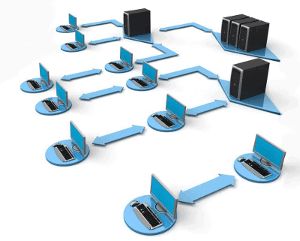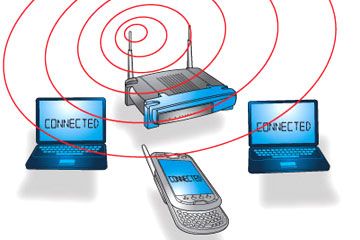Wired Or Wireless
Jun 12, 2019 • 27 views
A wired network uses cables to connect devices, such as laptop or desktop computers, to the Internet or another network. A wireless network allows devices to stay connected to the network but roam not tethered to any wires. Access points amplify Wi-Fi signals, so a device can be far from a router but still be connected to the network. A wired network has some disadvantages when compared to a wireless network. The biggest disadvantage is that your device is tethered to a router.
Wired Networks
A wired network connection is that involves cables which establish connection to the internet, and other devices on the network. Data is transferred from one device to another or over the Internet using Ethernet cables.

Advantages
Reliability and stability: When configured properly wired networks provide reliability and stability. It is because, the signal is not influenced by other connections.
Visibility: Wired networks are not visible by additional wired networks. It means there is no interference with the connection. At the same time, the network nodes can still communicate with other nodes on the network to facilitate effective data transfer.
Speed: Wired networks are generally much faster than wireless networks. It is faster since it is never weighed down by unnecessary or unexpected traffic.
Security: When configured with the necessary firewalls, and other security applications, a wired network is well protected from unauthorized access.
Cost: Depending upon the configuration, the framework for a wired network can be rather inexpensive to install. Ethernet cables, switches, routers, and other hardware is relatively cost effective.
Disadvantages
Lack of Mobility: Wired networks can be inflexible regarding mobility. In order to use our device in a different location, it is necessary to run extra cables and switches to connect a device to the network.
Installation: Depending upon the size required or the infrastructure, installation can be lengthy and complex to connect each and every device to the network, install the routers, switches, etc.
Maintenence: If a wired network requires a server, the maintenence could be potentially costly. Plus, you would have to compensate an IT professional or a staff of IT professinal.
Wires: Running a wired network means dealing with wires that can be unsightly and inconvenient.
Wireless Networks
Wireless networks are configurations that operate on radio frequency or microwave signals. The radio signals allow wireless enabled devices to communicate with one another and the internet without having to be connected to the network via an Ethernet cable.

Advantages
Cost: In general, the cost of implementing a wireless network is relatively inexpensive unless your network required additional equipment such as wireless repeaters or a commercial grade router.
Installation: Overall, installation of a wireless network is faster and easier because it requires less equipment.
Mobility: Wireless networks allow to be more flexible to access the network from any location using any type of wireless enabled devices.
Disadvantages
Visibility: One network is visible to the other which can affect the performance of the connection. There is a possibility of interference by other wireless enabled devices or obstruction is higher.
Security: It is less secure since the communication signals are transmitted through air.
Speed: As a whole, wireless networks lack the data transmission speed capability of wired networks.
Reliability and Stability: Wireless networks are prone to interference by other networks, wireless enabled devices, and other objects such as walls that can obstruct the connection.
